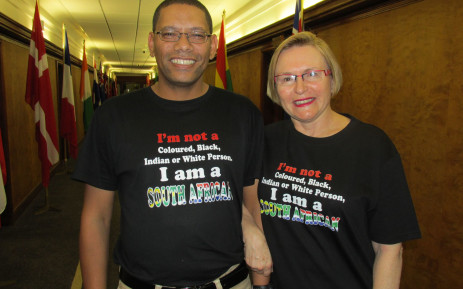A mixed-race South African teacher opposed to classifying people on the basis of race was charged with fraud and summoned to a disciplinary hearing after he claimed to be “African” on a job application in 2017.
Glen Snyman, a former teacher at Grootkraal Primary School in the province of Western Cape, South Africa, was fired and charged with fraud after officials were alerted about discrepancies between previous documents and a three-year-old job application.

Snyman, whom the BBC described as mixed race, fell into a racial category characterized as “colored” in South Africa. He claimed that he was African on a 2017 resumé for a job application for a school position but previously identified himself as “colored” on other documents.
The South African Ministry of Education discovered that Snyman has been identifying as African for years after investigating the matter.
Charges against Snyman have been dropped, and Western Cape Education Department spokesperson Bronagh Hammond said they would be in contact with him in order to record his personal details accurately.
“We have reviewed the case and believe it does not warrant further action,” Hammond said.
Economic Freedom Fighters provincial chairman Melikhaya Xego, speaking to the Sowetan Live last week about the affair, said, “We would like to remind you of the fact that under the laws of the Republic of South African, Mr Snyman has the right to identify himself as African if he feels uncomfortable with being identified as coloured”
Snyman has fought against racial classification systems in South Africa for years, and founded People Against Race Classification, an organization aimed at stopping the classification of people by terms like “white,” “colored,” “Black,” and “Indian.”

The website asks people to select the “Black African” box on all forms that inquire about race. Snyman has said since 2010 that he identifies “first and foremost” as a South African.
Job candidates are often assigned an “equity score” based on race and gender that is intended to help companies reach employment targets to seek redress for past racial injustices, 26 years after the end of white-minority rule in the nation. The racial designations are used to provide certain groups with extra opportunities, by acknowledging the ongoing inequity spurred by apartheid-era discrimination.
By identifying as African, Snyman is accused of trying to benefit from this system by identifying as a member of a historically marginalized group, whereas colored people were viewed as being of a higher social status than Africans in the past.
Of Snyman’s case, Hammond said it “raised a number of issues with regards to race classification and identity that will require deeper discussion and reflection.”
The embattled educator told the Cape Times last week he is not doing well emotionally amid the fraud accusations, saying, “It has been a long journey.”


